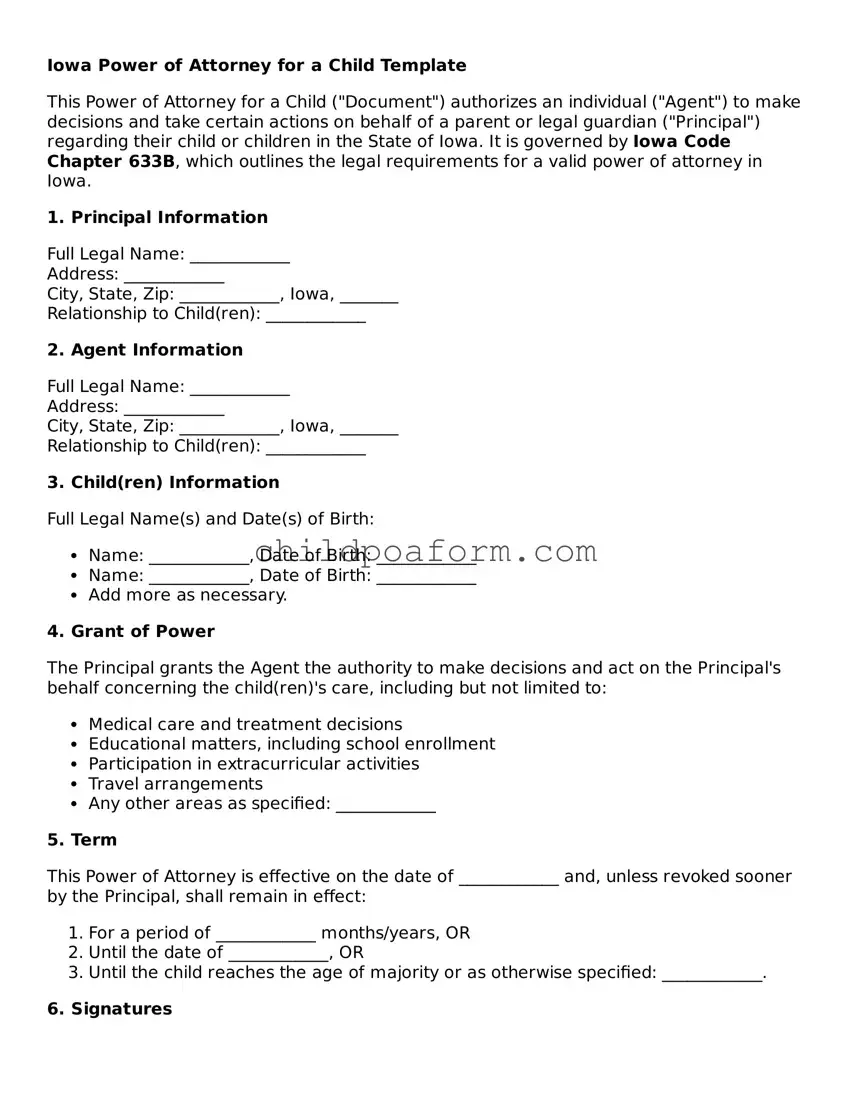Instructions on Utilizing Iowa Power of Attorney for a Child
In Iowa, when a parent or guardian needs to designate another adult to make decisions for a child in their stead, they use a Power of Attorney for a Child form. This could be due to a variety of reasons, such as travel, medical emergency, or other personal matters requiring temporary transfer of parental authority. It’s a crucial document that allows the child’s well-being to be managed effectively in the parent or guardian's absence. Here is a step-by-step guide to fill out this form, ensuring that all necessary details are correctly documented to uphold the child's best interests in the eyes of the law.
- Start by clearly printing the child’s full name and date of birth at the top of the form. This identifies whom the power of attorney will concern.
- Next, enter the full names and addresses of the parent(s) or current legal guardian(s). This establishes who currently holds legal responsibility for the child.
- Fill in the full name and address of the individual being granted power of attorney. Make sure this information is accurate to avoid any legal confusion or misrepresentation.
- Specify the start date when the power of attorney will become effective, and note the end date if the duration is known. If the timeframe is open-ended, relevant conditions for its termination should be clearly stated.
- Detail the powers being granted to the appointed individual. This should include what decisions they can make on behalf of the child, such as educational, healthcare, and daily care decisions.
- Sign and date the form in the presence of a notary public. Both the parent(s) or legal guardian(s) granting power and the individual receiving it must sign the document to validate it.
- The form must then be notarized. This step typically involves a declaration before a notary public who will verify the identities of the signatories, witness the signing, and then stamp or seal the document, making it legally binding.
Upon completion, the Power of Attorney for a Child form allows the designated individual to act on behalf of the child in specified matters. It’s important to keep a copy of this document in a safe place and provide copies to relevant entities, such as schools and healthcare providers, to ensure the child's needs are met without disruption. Remember, this form can be revoked at any time by the parent or guardian who granted it, provided the revocation is completed in accordance with Iowa law.
